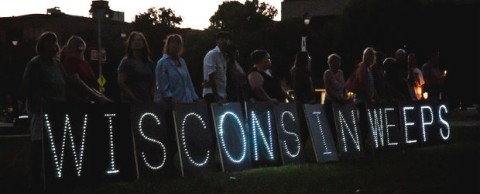From ignorance to engagement: Scott Anderson on interfaith relations in Wisconsin

It has been a rough year for the state of Wisconsin. A painful and divisive recall election of governor Scott Walker tore the state apart in the spring. Then last week a lone gunman killed seven people, including himself, and wounded three others at a Sikh temple outside Milwaukee. I spoke to Scott Anderson, director of the Wisconsin Council of Churches, which has been active in ecumenical and interfaith work in Wisconsin for five decades.
How did you hear about the shootings?
We heard about it through media sources as soon as it happened, and we did a quick assessment of our short-term response and what our capacities were. Calling for a statewide day of prayer seemed to be a natural outgrowth of our work, something that we could do as an organization. We signaled to churches around the state that we were going to declare Sunday, August 12 a day of prayer. In these situations, people wonder what they can do, and this is a first step.





